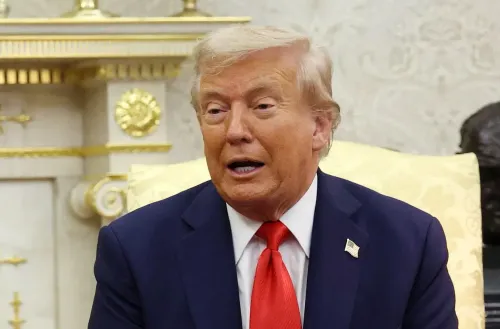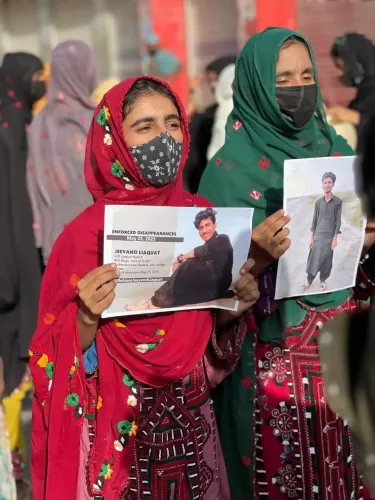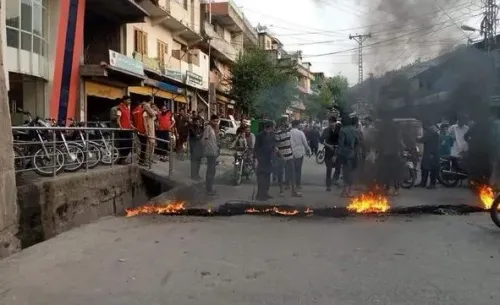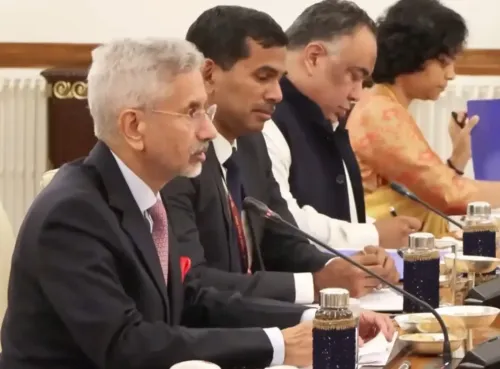South Korea: Ruling Party Joins Consultative Body to Enhance State Stability
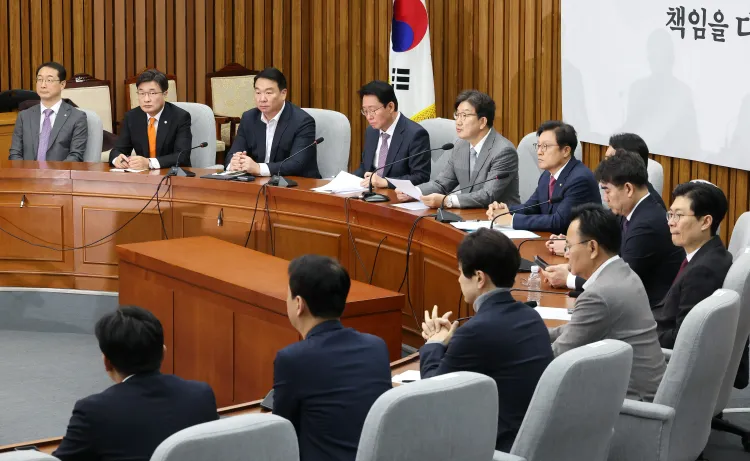
Seoul, Dec 20 (NationPress) The acting leader of the ruling People Power Party (PPP) announced on Friday the party's decision to join a consultative group comprised of opposing parties and the government to stabilize state affairs in the wake of President Yoon Suk Yeol's impeachment.
PPP Representative Kweon Seong-dong, the interim leader of the ruling party, informed the media that the party will take part in discussions concerning security and enhancing citizens' livelihoods, as originally suggested by National Assembly Speaker Woo Won-shik earlier this week.
During discussions with acting President Han Duck-soo, Woo urged Han to promptly establish the joint consultative body to restore political stability, as reported by Yonhap news agency.
The PPP has also opted to participate in a bipartisan parliamentary delegation of lawmakers visiting abroad, as Kweon mentioned.
On Thursday, South Korea's Acting President Han Duck-soo exercised his veto power over six contentious bills, marking his first significant action since taking the interim leadership role following President Yoon Suk Yeol's impeachment related to a failed martial law attempt.
Han supported a motion for reconsideration of four agricultural bills and two parliamentary-related acts that the main opposition Democratic Party passed last month, which was approved in an extraordinary Cabinet meeting he led earlier that day.
"It weighs heavily on my heart as I request the National Assembly to revisit the six bills at this crucial moment when collaboration between the government and political parties is more vital than ever," Han stated.
"Nevertheless, the government must make a responsible decision that emphasizes the spirit of the Constitution and the future of our nation," he added.
One of the significant bills is the Grain Management Act, which requires the government to purchase excess rice to stabilize prices amid market fluctuations. A similar bill was vetoed by Yoon in March 2023 and later discarded in a revote.
Other bills include the National Assembly Act, which seeks to prevent the automatic submission of the government budget to the plenary session after the legal deadline, and the National Assembly Testimony Appraisal Act, obligating companies to provide requested data to lawmakers.
Han articulated that the agricultural bills would disrupt the market system, lead to an oversupply of rice, and impose 'substantial financial burdens' on the government, as reported by Yonhap news agency.
He also noted that the proposed amendment to the National Assembly Act eliminates a 'minimum standard' that parliament must adhere to for the timely execution of the national budget, potentially harming the public.
Regarding the amendment to the testimony and appraisal act, Han expressed concerns that mandatory data submission to lawmakers under any circumstance could infringe upon privacy rights and pose risks to essential technologies and trade secrets.
The government and the ruling People Power Party have voiced their opposition to the bills, citing worries about the financial implications of mandatory rice purchases and potential trade data leaks during parliamentary testimonies.
Conversely, the main opposition Democratic Party has urged the interim leader to exercise caution and maintain the current situation.
Han took on the role of acting President after Yoon was impeached on Saturday due to his brief martial law declaration on December 3.

